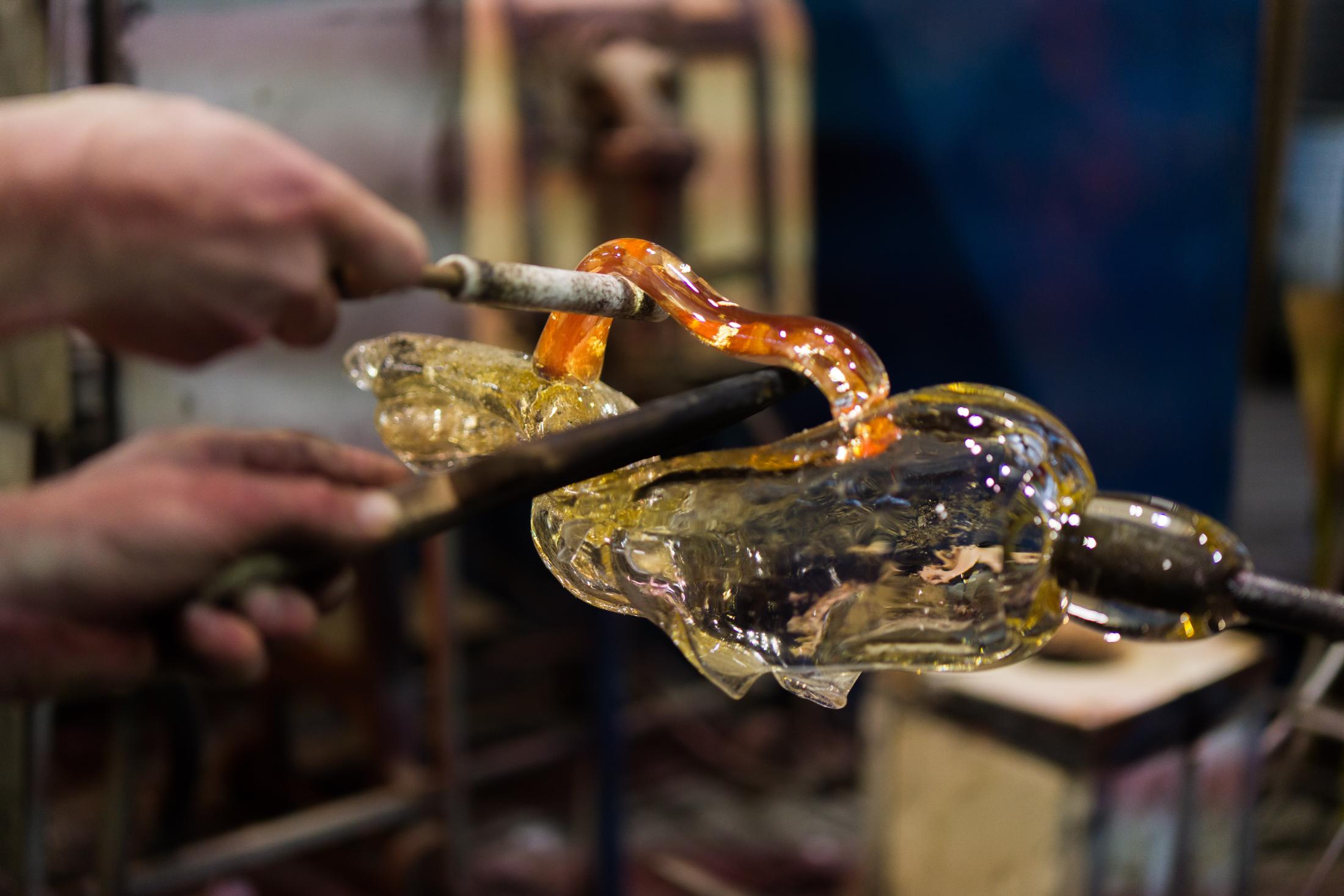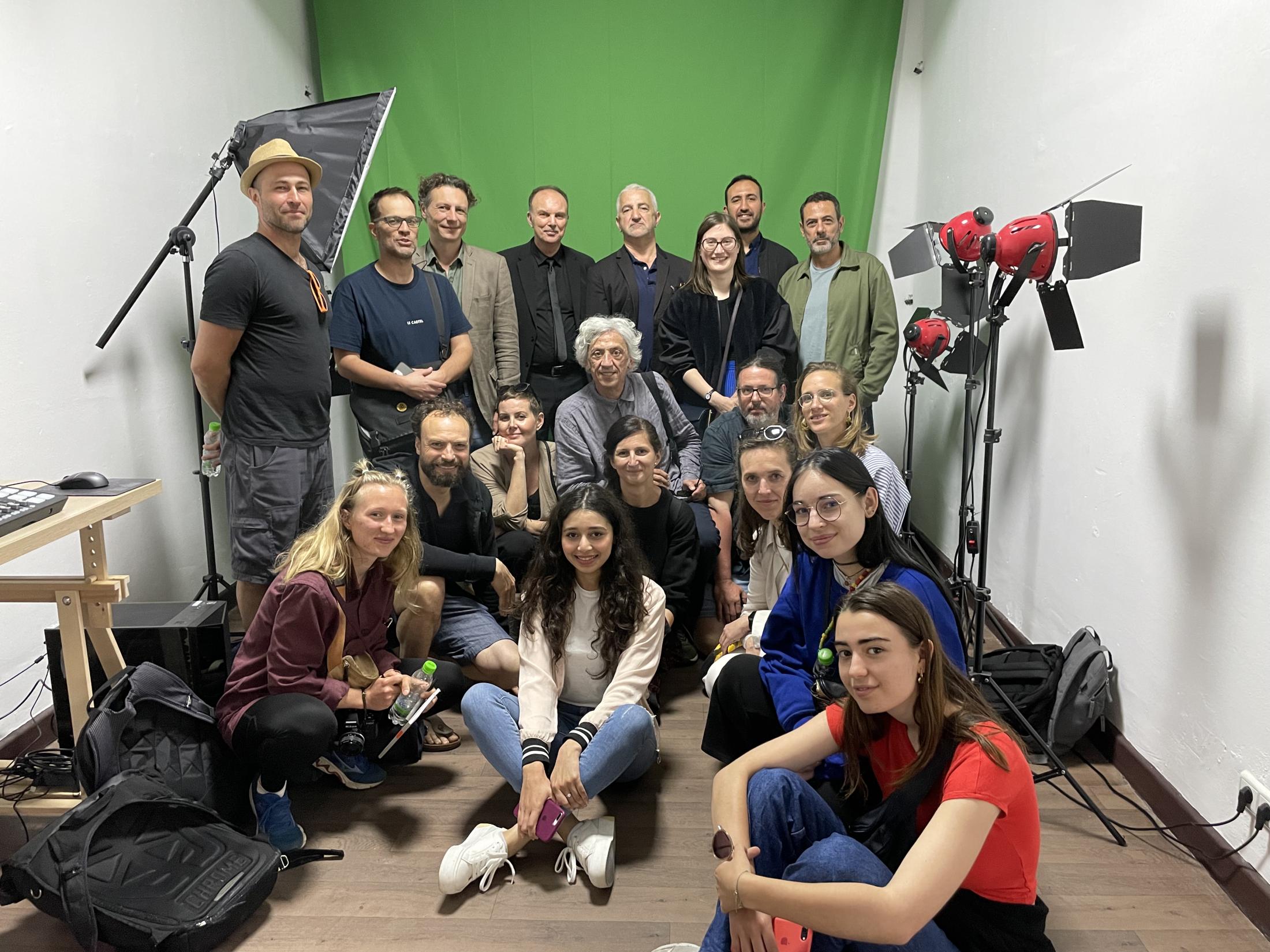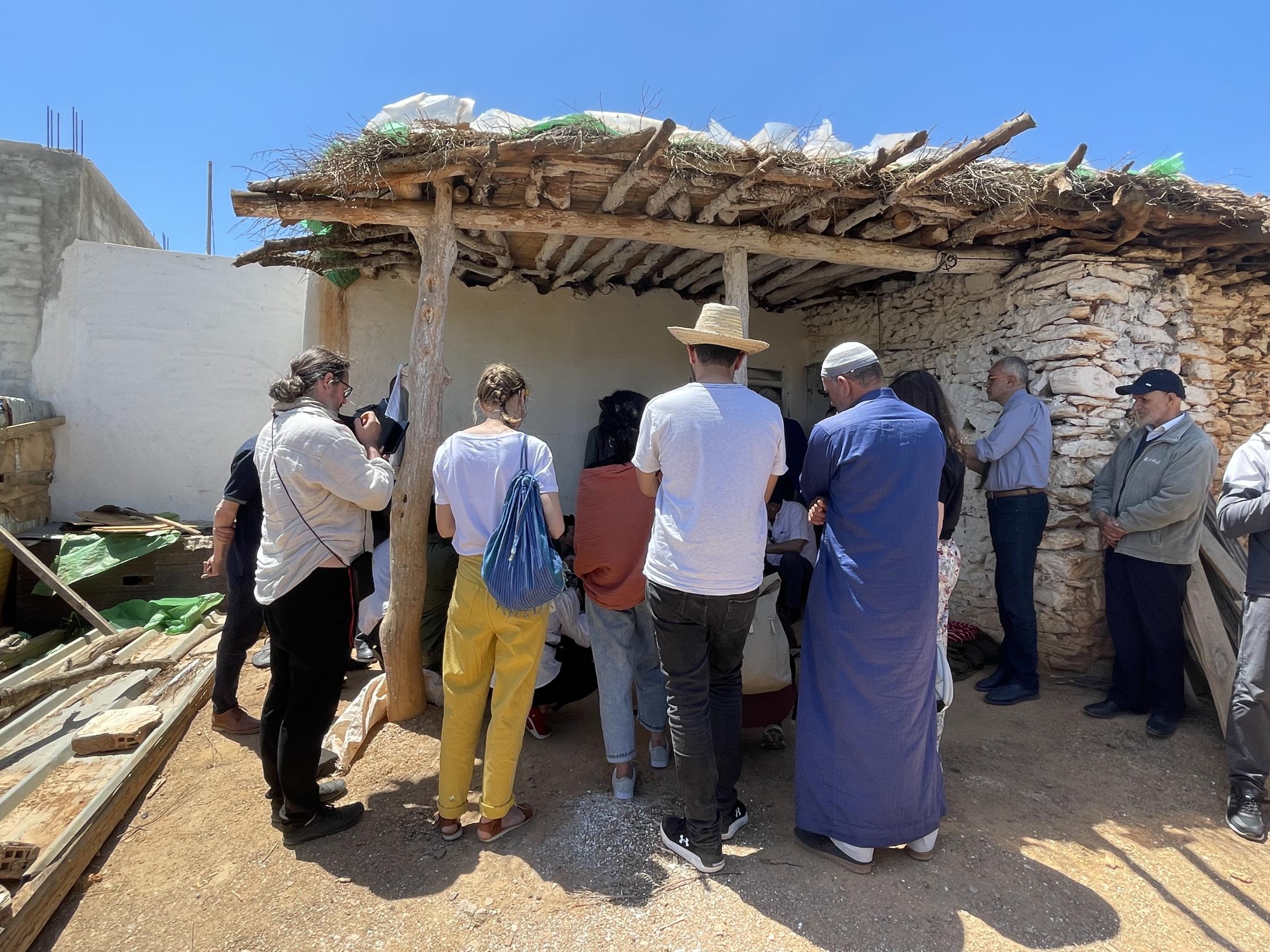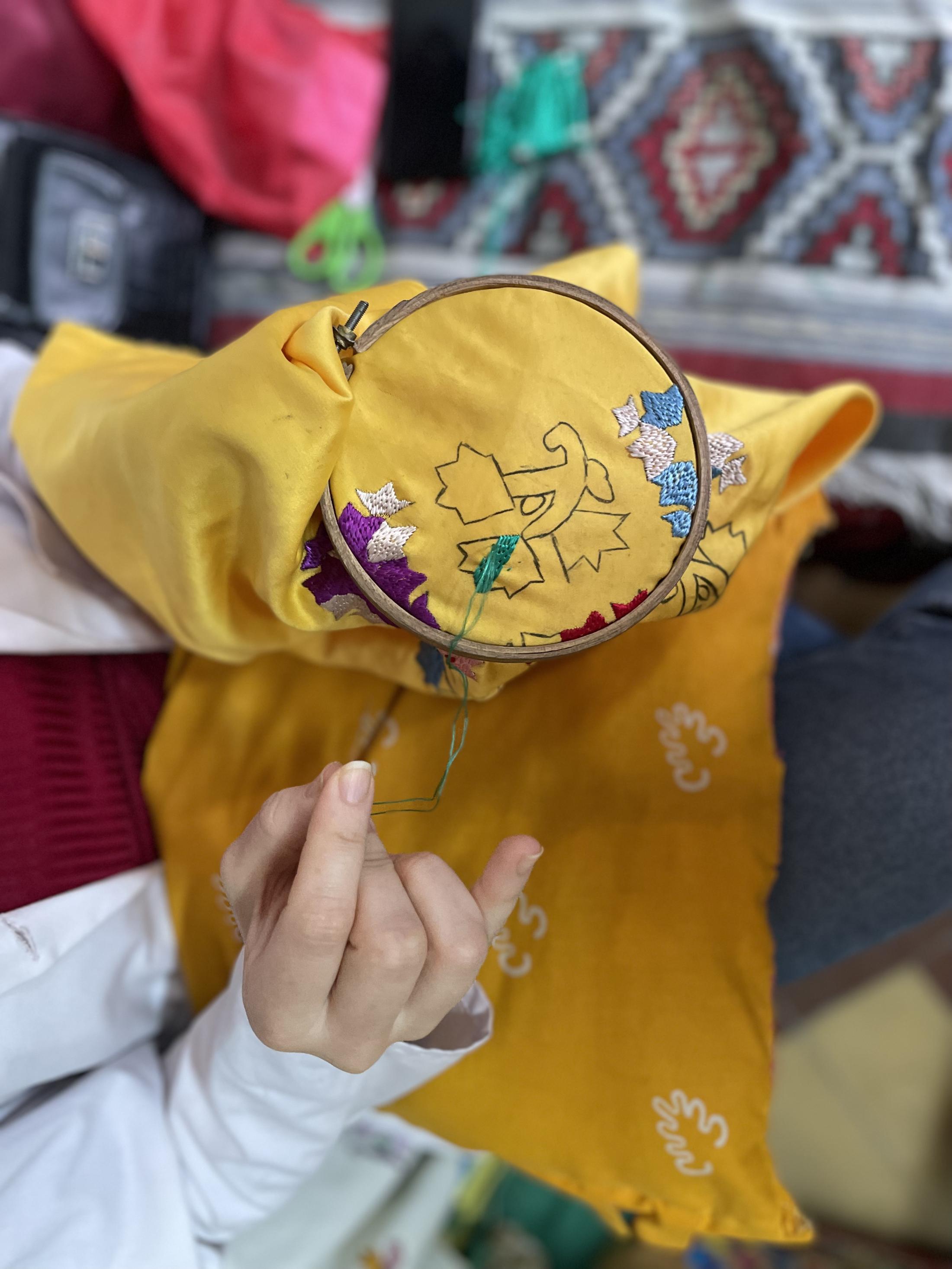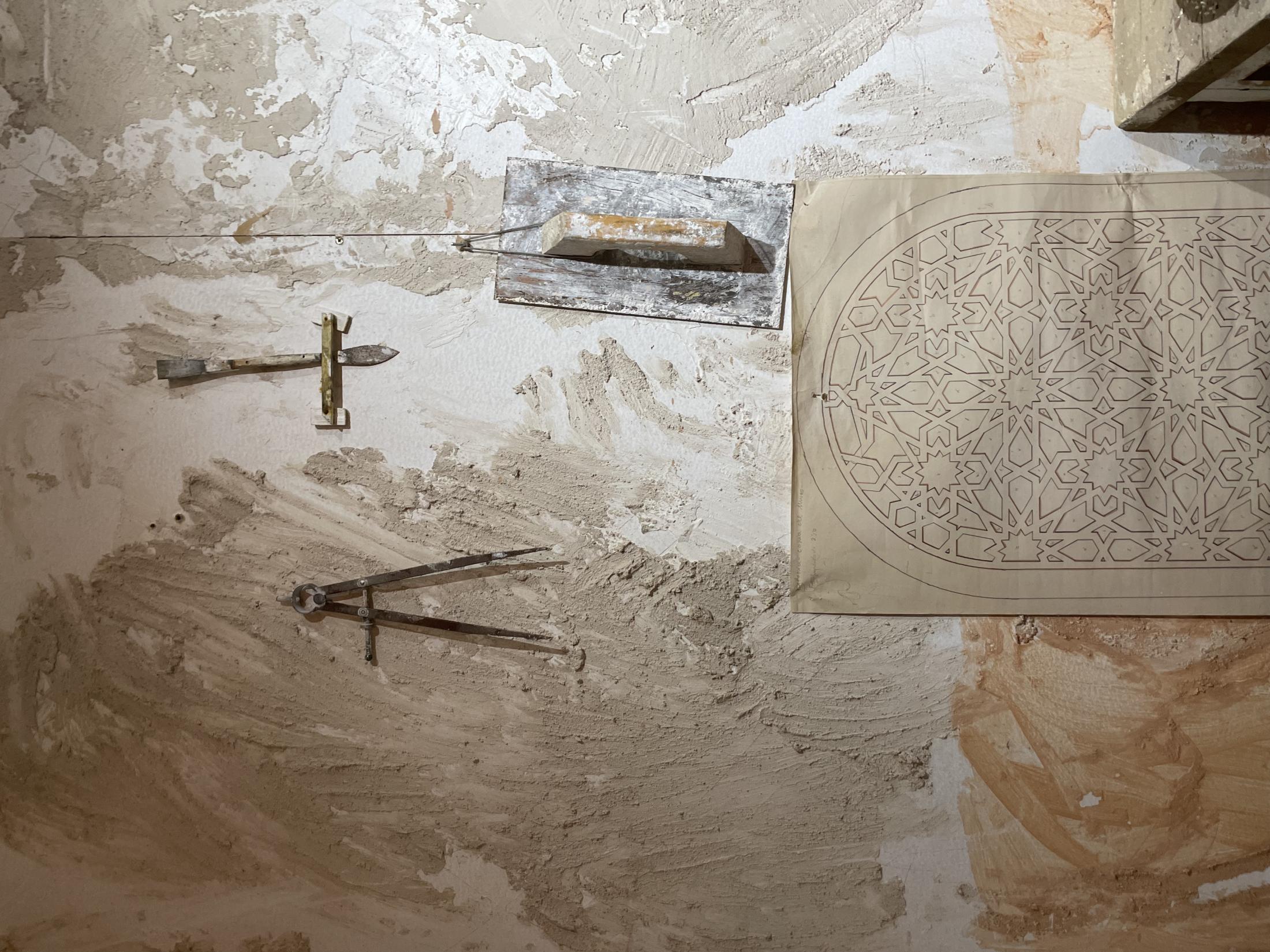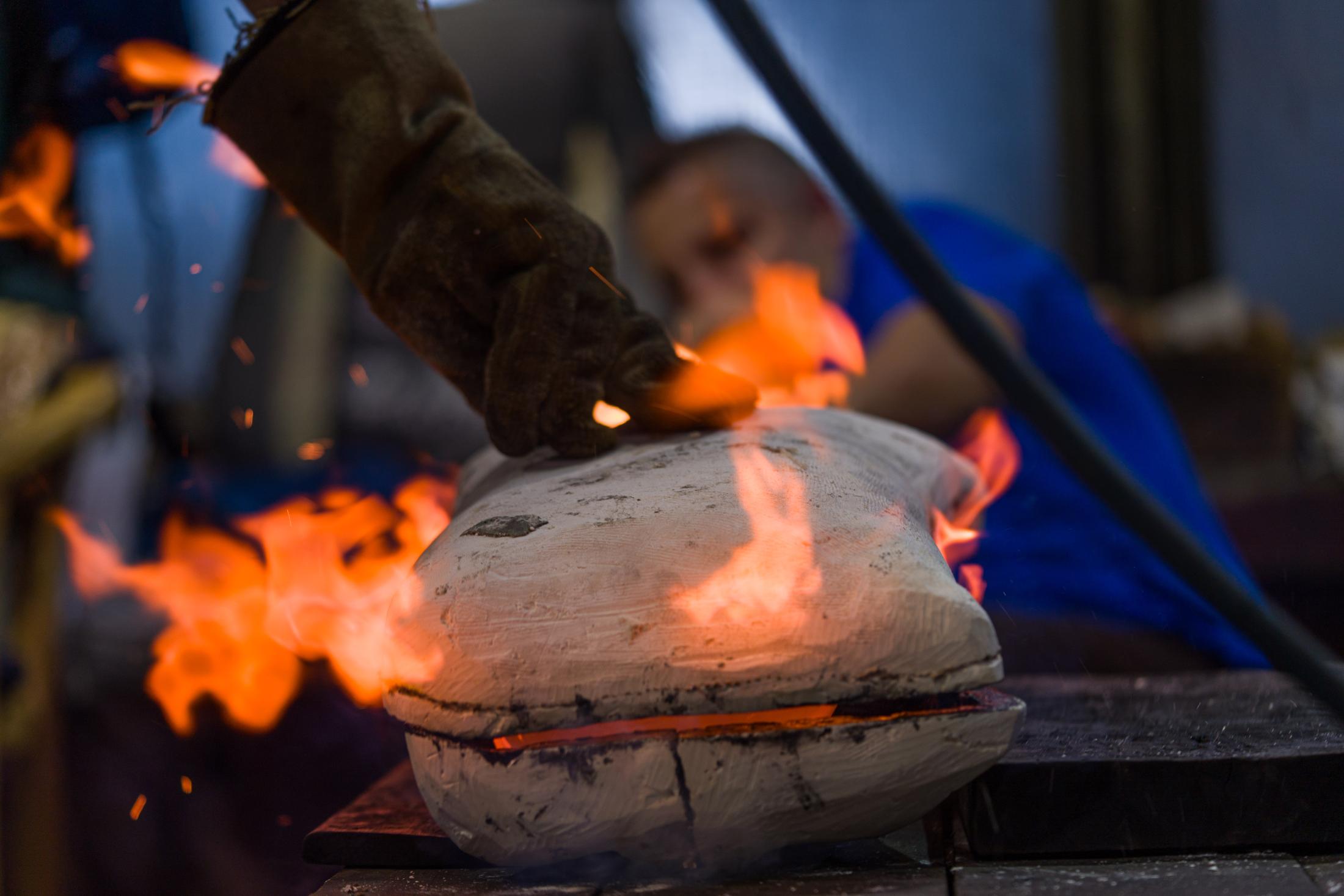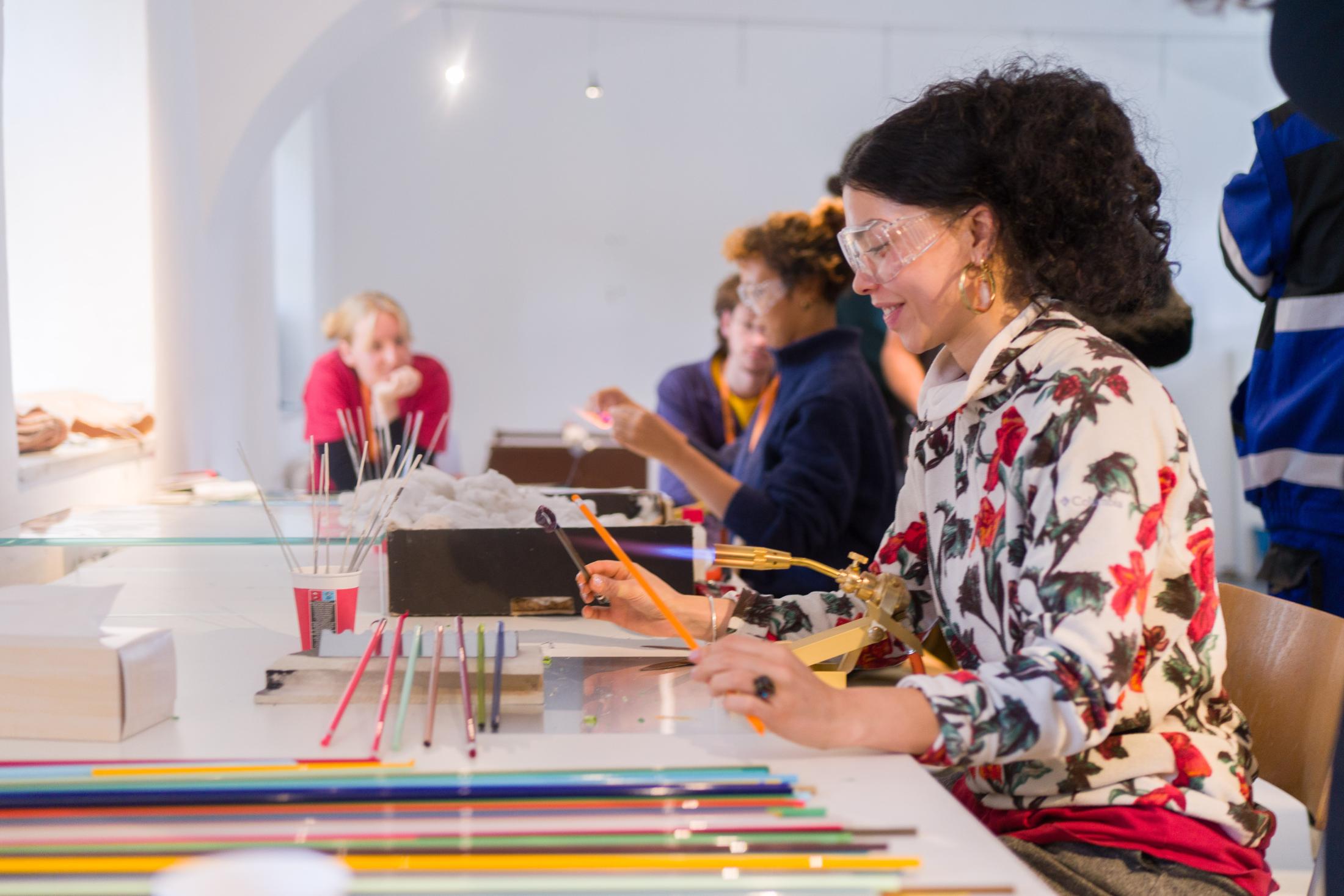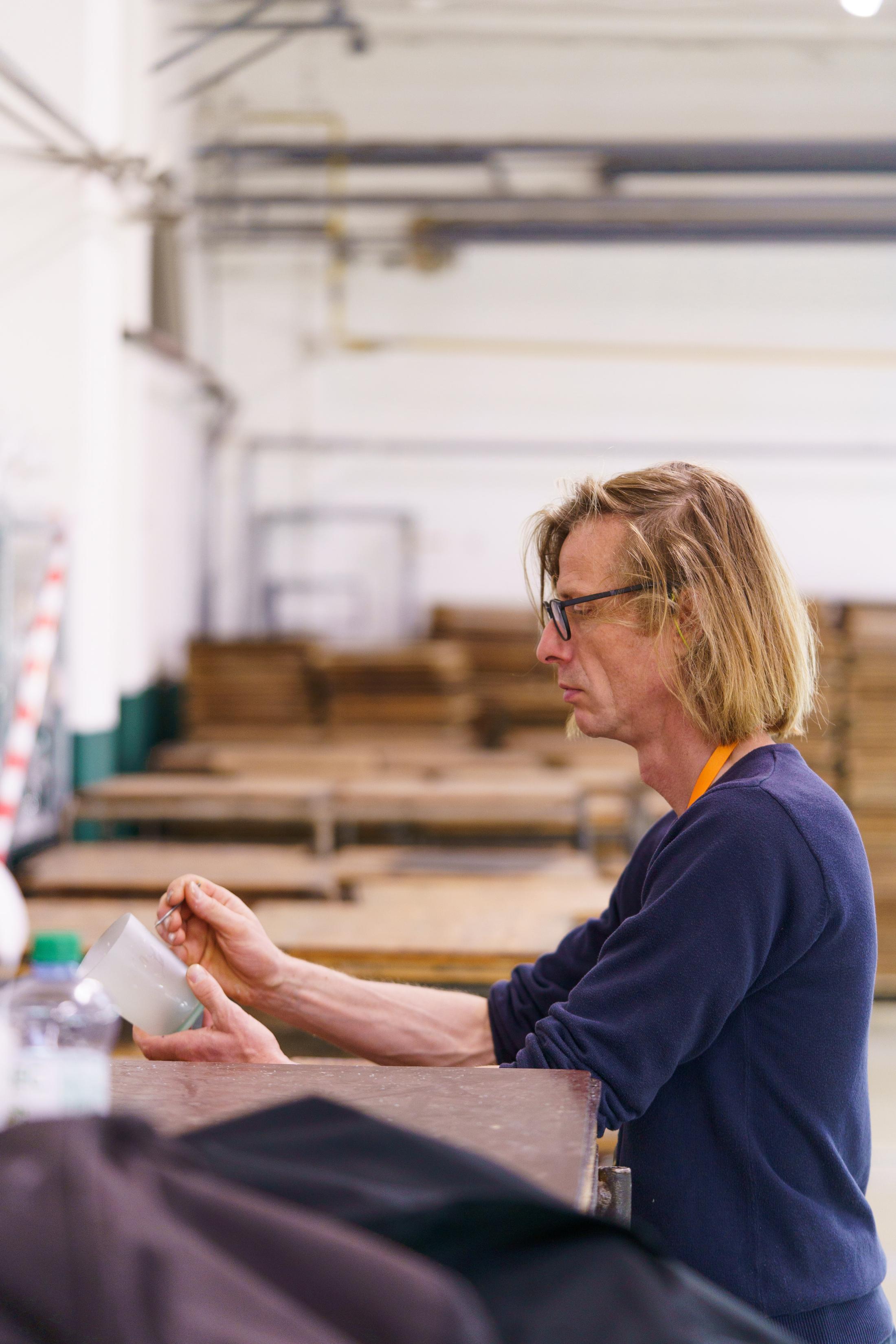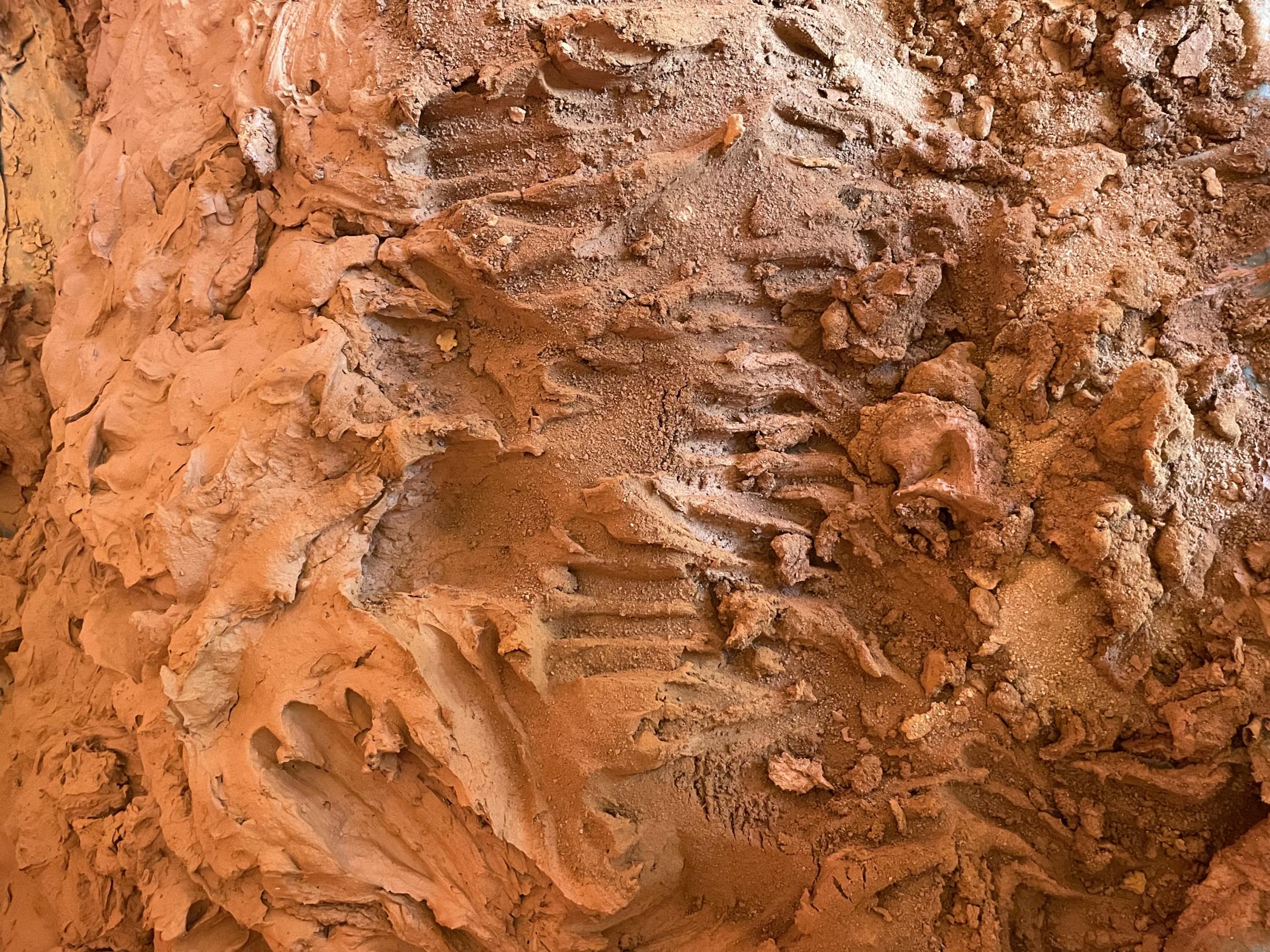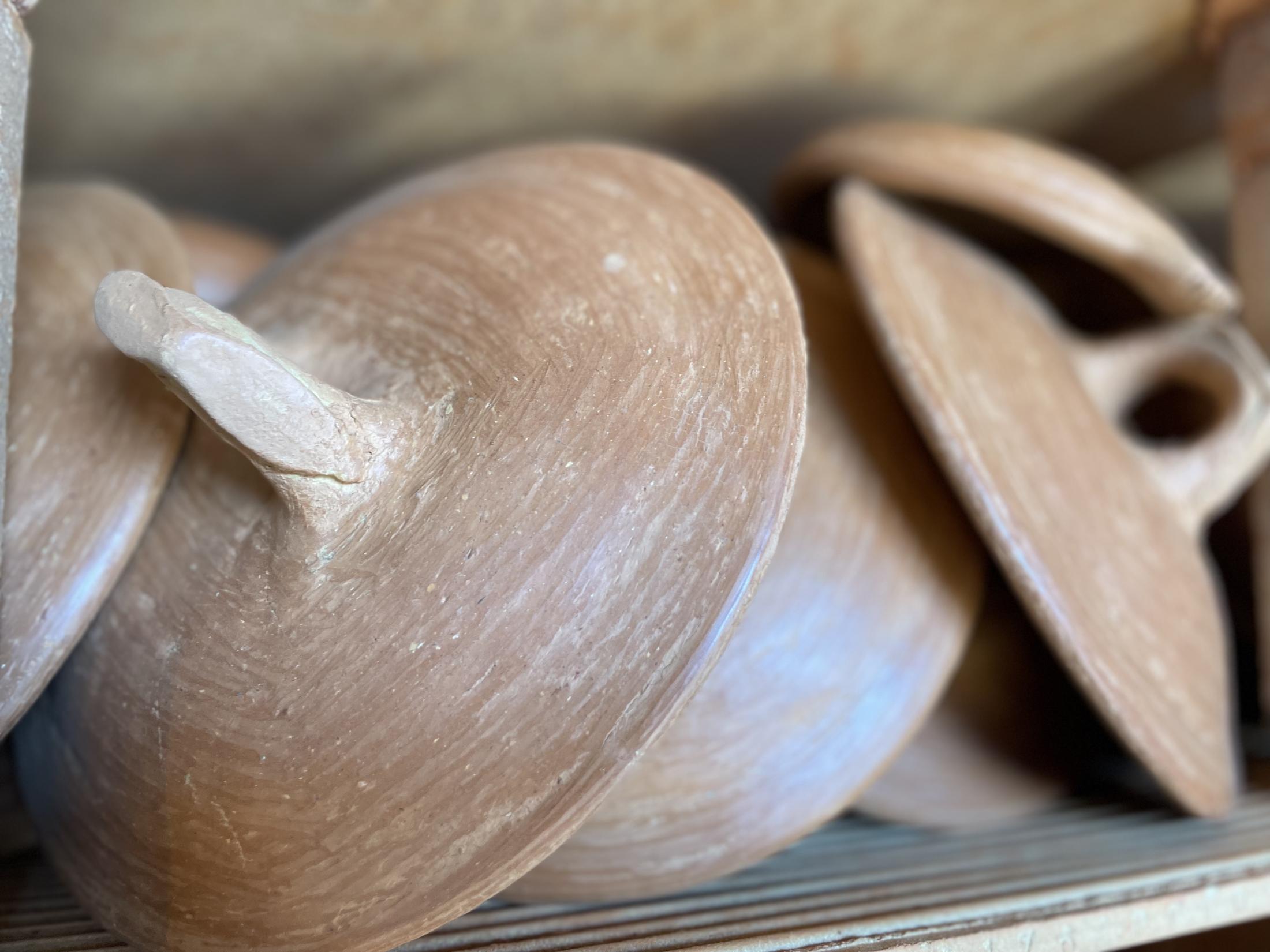Arts & Crafts, aujourd'hui | Erasmus +
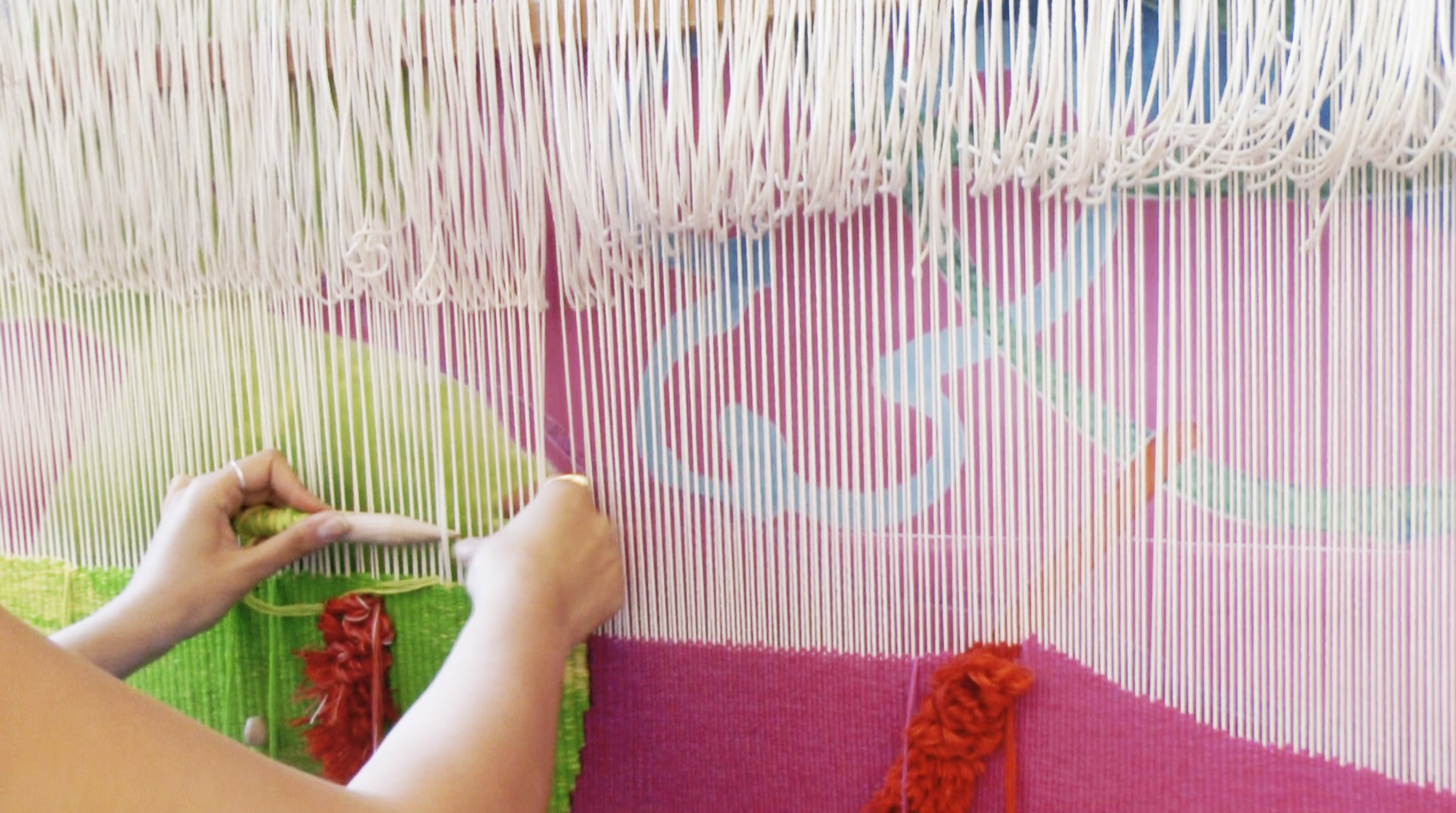
Thanks to a series of international exchanges and meetings, including the international colloquium in October 2019, a network of partners has been built up around this theme, with a desire to carry out an educational project involving students, teachers and staff within these schools and aiming to rethink the way art and design is taught within our schools and more widely in Europe.
In 2021, the European Erasmus + Programme is providing funding under the "Cooperation Partnerships" key action to carry out innovative teaching and research work for 3 years, 2021-2024.
The idea for the project arose within the working group on a research programme set up between 2015 and 2018, entitled "French Theories", which brought together the Ecole Supérieure d'art et design de St.Etienne (Esadse), the Université de Québec à Montreal, Ecole des arts visuels et Médiatiques (UQAM) and the ArBA-EsA. Thanks to the work initiated, the interest of an international project was identified, reconnecting theory and practice and exploring the possibilities of artistic research through practice.
"Today we are seeing a reappraisal of materiality in art and design, among professional artists and within our student community. What's more, among artists and designers there's a need to reassert the value of local know-how and to establish a dialogue with practices based on traditional or completely new crafts (digital crafts). At the same time, there is a search for production methods that are more respectful of the environment, in a post-industrial age. There is a desire to rethink our relationship with objects in the age of the Anthropocene.
This reality calls for new training methods in art and design. While art and design schools have many assets to help them meet these objectives, notably their technical workshops, these new training and professionalisation requirements mark a real departure from the vision of the artist or designer as a solitary creator, far removed from technical skills, a pedagogical vision that must now be completely transformed. This pedagogical transformation is essentially based on taking practice into account as a method of learning and research. While practice is still generally seen as the execution of projects conceived beforehand in design, and the studio and the office seen as quite distinct spaces, the aim here is to draw out the theoretical issues from the gestures, tools and procedures, in other words to reconcile the hand and the brain, a production that will be simultaneously theoretical and plastic. "
The project aims to adapt art and design teaching to the realities and changes of today's creative industry by developing training experiences based on action research, linking art and design schools with production sites and craft techniques.
What's more, the international dimension is part and parcel of a creative ecosystem that is networked on a global scale. Whether in terms of markets, symbolic recognition, intellectual emulation or the circulation of cultural forms and influences, even the most dynamic metropolises can no longer think of themselves as centralised centres of creativity.
Académie royale des Beaux-Arts de Bruxelles (ArBA-EsA)
Academy of Fine Arts and design Bratislava
Institut National des beaux Arts Tétouan
Université de Porto : faculté des Beaux-Arts
Ecole Supérieure d’art et design de St.Etienne
Université de Québec à Montreal, Ecole des arts visuels et Médiatiques
Cooperation around the Arts and Crafts theme is working on the development of innovative educational tools and pathways to enable :
- Equip students with the skills to work with craftspeople and production sites, enabling them to come to terms with the realities of the professional world.
- Analysing and using craft practices in a variety of cultural contexts, with traditional forms and skills or new forms linked to digital crafts.
- To explore the special position of the artist as an agent of change, who places himself at the centre of societal issues, decompartmentalising and democratising art and design.
- Look for new production methods that meet ecological challenges (waste management, minimising waste, resource management, reorganising production methods).
Encouraging innovation and a transformation in the way we look at things and the way we use them, through collaboration between craftspeople, designers and artists.
Activities - International workshops
31.01 — 04.02.2022 | L'artisanat régional et son utilisation dans le design et l'art contemporain
Organised by la Faculté des beaux-arts de Porto (Universidade do Porto, Portugal)
09.05 — 14.05.2022 | Grand Atelier : La poterie féminine dans le nord du Maroc
Organised by l'Institut National des Beaux-arts de Tétouan (INBA, Maroc)
22.05 — 27.05.2023 | École d'été : Matérialité des engagements \\ Donner corps à la recherche
Organised by l'Université du Québec à Montréal (UQÀM, Canada)
23.10 — 27.10.2023 | RONA Glass Factory
Organised by l'Académie des beaux-arts et du design de Bratislava (VSVU, Slovaquie)
12.12.2023 | Dissémination - Présentation du projet Arts & Crafts, aujourd'hui dans le cadre de la rencontre avec ANdÉA
29.01 — 02.02.2024 | Atelier Nomade la lithographie in situ (Timetable for the week) (Universidada do Porto, Portugal)
Reportage de l'Atelier Nomade à Porto à ce lien https://www.youtube.com/watch?v=DI1NRzeYcQw
18.03 — 22.03.2024 | Arts & Crafts, aujourd'hui
Organised by l'Académie royale des Beaux-Arts de Bruxelles - École supérieure des Arts
25.03 — 29.03.2024 | Semaine Procédure matériaux
Organised by l'École supérieure d'art et design de Saint-Étienne
▶︎ Abécédaire Arts & Crafts : for a new way of creating and inhabiting the world
▶︎ Bifurcations pédagogiques : research-creation methodology
▶︎ Collaborative digital space and virtual exhibition Arts & Crafts Aujourd'hui
30.01.2024 ⁄ 18:00 — 19:15
Présentation d’un nouvel outil : la plateforme numérique collaborative Arts & Crafts aujourd’hui
Visioconférence le 30 janvier 2024 à 18h (Paris, UTC+1)
A&Ca Festival
We are pleased to invite you to Arts & Crafts Week, today at the Royal Academy of Fine Arts - École supérieure des Arts, from 18 to 23 March 2024. This event has a much broader dimension than just an academic gathering.
It embodies a holistic and ambitious approach, shaped by our commitment to issues of transmission within the Higher Schools of the Arts, international collaboration and the importance of meeting the transformations of our times through the specific prism of questions of know-how, craftsmanship and techniques. From the outset, the Arts & Crafts project has set itself the goal of becoming a platform for exchange and sharing between different art schools. This somewhat Herculean adventure has led us to welcome representatives from five partner schools: the Academy of Fine Arts and Design in Bratislava; the Institut National des Beaux-Arts in Tétouan; the University of Porto: Faculty of Arts; the École Supérieure d'Art et de Design in Saint-Étienne; and the École des Arts Visuels et Médiatiques attached to the Université du Québec à Montréal.
A festival week
As part of the A&Ca project, the ArBA-EsA has carefully devised a variable-geometry programme, placing student participation at the heart of the project in order to explore new avenues. We invite you to experience a festival week that is both joyful and experimental, and that we hope will be rich in practice and reflection. On the programme: workshops, discussion tables, exhibitions, collective art projects, conferences, radio shows, film screenings and social events. This week is aimed at our guests and the whole Academy community, offering an opportunity to discover the school in a new light, to break down barriers and to encounter the diversity of practices and proposals.
Framework for reflection and sharing: Arts & Crafts through the prism of pedagogical bifurcations.
The Arts and Crafts movement, embodied by its figurehead, W. Morris, saw the learning of manual skills, or "crafts", as an emancipating force. Pedagogy and education thus became a vehicle for the emancipation of individuals - empowerment - a process by which an individual, a community, an association, etc. takes control of the events that affect him or her. Educational bifurcation" refers to a concept derived from the theory of complex systems. This concept is based on the idea that systems, including education systems, can undergo moments of transformation, change of direction or divergence, known as "bifurcations". In the pedagogical context, bifurcations represent moments when pedagogical practices seek and combine emancipation and engagement, when new ideas emerge and new ways are explored to improve learning and teaching.
Perspectives
The A&Ca project, through the prism of "pedagogical bifurcations", is emerging as a significant tool, capable of stimulating reflection and initiating debate in the field of education. These moments of convergence and sharing represent an opportunity where new trajectories can be explored to meet the changing needs of learners and the contemporary challenges of society.
In the context of the Arts & Crafts project today, the concept of bifurcation therefore becomes an invitation to research and engagement.
Echoing the concerns raised by William Morris in his day, we encourage people to think and act in this way.
Today, Arts & Crafts is positioned as a platform dedicated to know-how and its valorisation, to reflection on working and production conditions, and on the forms of emancipation and creation that can be generated.
Our initiative aims to encourage a reconsideration of the collective sense of living together, promoting values of sustainability, community resilience and future development through a focus on manual labour and the promotion of responsible artistic practices, while aspiring to create an environment where making and critical thinking converge to shape a more balanced future.
To discover the full programme for the week, cliquer ici (rendez-vous page 19)
